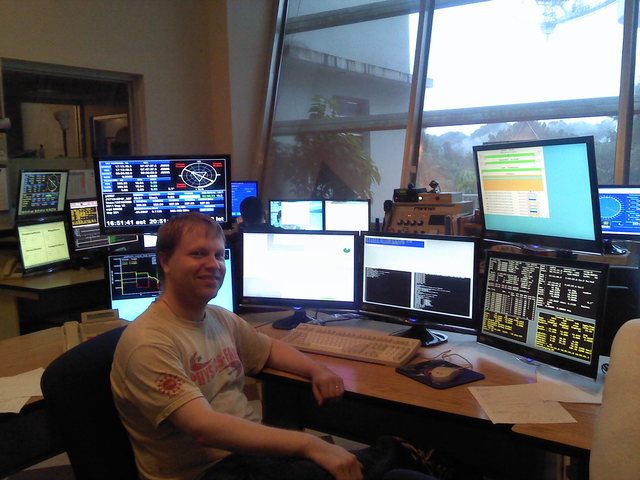
Timothy Dolch | Courtesy
The physics department is offering two elective courses next spring. Professor of Physics Timothy Dolch is hoping they will bring in more students from a variety of majors.
PHY 120: Astronomy and PHY 350: Computational Physics will be offered as three- and two-credit classes respectively. Both courses have been offered in the past, Dolch said, but he plans to reach a wider audience of students across the sciences, as well as more non-science majors.
Dolch originally taught Computational Physics every other year, but with a growing demand for computer programming classes, the physics department decided to start offering it annually. The class will use Python, a widely-used computer programming language, Dolch said.
“Python is a skill, an art, to learn how to write code and have it work efficiently and beautifully. There’s something very satisfying about that,” he said. “It’s a push from both the math and physics departments. Across the sciences and other fields like accounting, everyone is programming. As a biologist, you might spend your day programming.”
Dolch recommends students have some familiarity with physics to take the class, but when he taught the class last year, lots of students who didn’t have a background in physics did well, he said.
Senior Emma Clifton took the programming class last year, the first time Dolch offered it. The course, she said, was practical in that it allowed students to apply programming concepts on a variety of projects.
“It was good for exposing me to some more actual applications of math and computer programming and simulating certain physics-related problems, like the trajectory of a spaceship around the planets, and how they move due to gravity,” Clifton said.
Meanwhile, the astronomy class is targeted for a broader audience, Dolch said. While students learn astronomy in the core physics class, the astronomy course will take that information further and will even include outdoor observations. Dolch also said that astronomy is one of the liberal arts, and for colleges that require a single science course, astronomy tends to be the most popular choice.
One audience Dolch intends to reach is students who will go into education careers and are likely to teach science of some sort.
“A large fraction of students who graduate go into Barney Charter schools. A lot of teachers will be doing science,” Dolch said. “This course is good for having that in their toolkit.”

